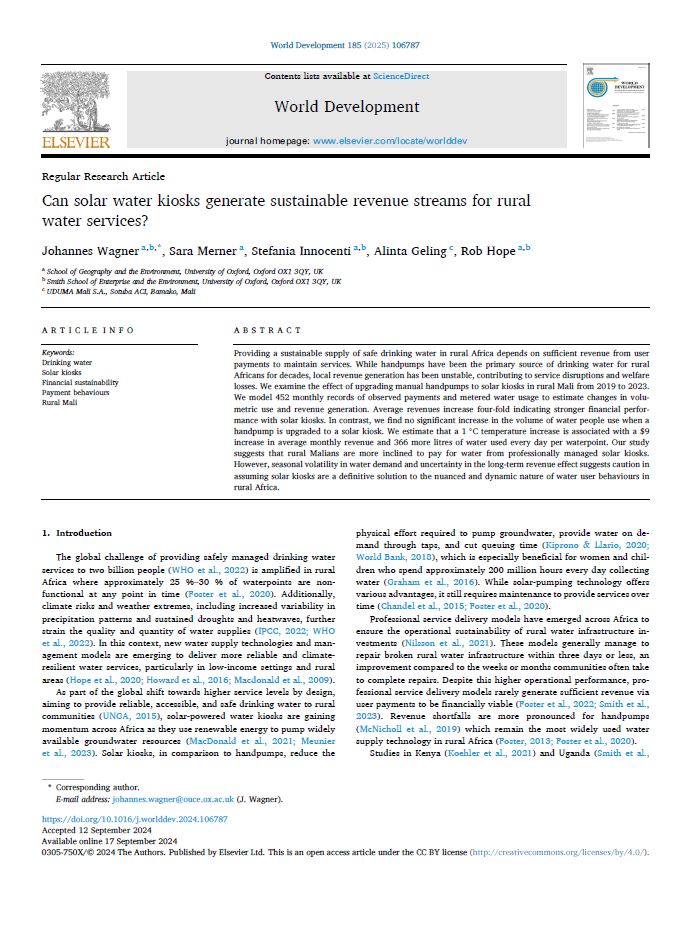Johannes Wagner, Sara Merner, Stefania Innocenti, Alinta Geling, and Rob Hope (2024)
Providing a sustainable supply of safe drinking water in rural Africa depends on sufficient revenue from user payments to maintain services. While handpumps have been the primary source of drinking water for rural Africans for decades, local revenue generation has been unstable, contributing to service disruptions and welfare losses. We examine the effect of upgrading manual handpumps to solar kiosks in rural Mali from 2019 to 2023. We model 452 monthly records of observed payments and metered water usage to estimate changes in volumetric use and revenue generation. Average revenues increase four-fold indicating stronger financial performance with solar kiosks. In contrast, we find no significant increase in the volume of water people use when a handpump is upgraded to a solar kiosk. We estimate that a 1 °C temperature increase is associated with a $9 increase in average monthly revenue and 366 more litres of water used every day per waterpoint. Our study suggests that rural Malians are more inclined to pay for water from professionally managed solar kiosks. However, seasonal volatility in water demand and uncertainty in the long-term revenue effect suggests caution in assuming solar kiosks are a definitive solution to the nuanced and dynamic nature of water user behaviours in rural Africa.

